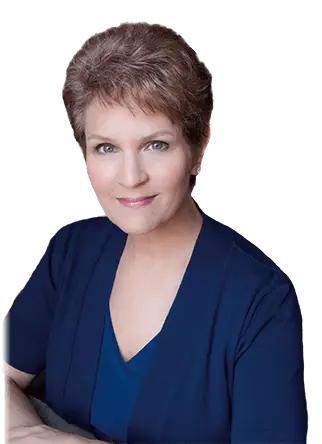What do more than 50 seasoned college recruiters from top-level corporations and universities say are the biggest mistakes college grads make in job interviews? That’s the question I recently posed to recruiters from companies and schools like Google, Disney, Sony, and Stanford University. The outcome of their votes? Their 20 ‘biggest bloopers’- five of which are outlined here. Are YOU committing any of these mistakes in your job search?
1. Not paying attention to YOU on the Internet. Chances are your interviewer or future boss will do a “Google search” on you before they decide to call you in for an interview. In fact, I found out that anywhere as many as 80% of recruiters now go beyond Google and search for you on social networking sites like Facebook and LinkedIn. So, think twice about what you post online, even if you think it’s protected by a password.
What does this mean for you and your online personal brand? Think twice before posting on your blog those wild photos from last year’s spring break on your Facebook page or a picture of you passed out on your friend’s living room couch. Veda Jeffries from Stanford University, says, “Students feel that Facebook, etc. is their personal thing, but it’s difficult to erase negatives about who you are when it is open to anyone and everyone.”
Pay attention to what you say in your blog or other social media, too. Negative comments about professors, internship colleagues, or dorm mates – or using bad language – may find you out of a job. Remember: Privacy is virtually non-existent on the Internet. As soon as you post it, your secret is out, and you may be unconsciously hurting your personal brand faster than you can click your mouse.
2. Believing a company’s “greeter” at a career fair is a peer or a confidante. Recruiters made it clear: The job of a company’s greeter at a career fair is to check you out just as much as an interviewer. Even if a greeter seems casual and talks to you like you were a friend, his or her job is to report back to the company whether to call you in for an interview or not. So, keep in mind that the greeter’s opinion counts! Also, make sure that you don’t say one thing to the greeter and something different to your interviewer. You’ll get caught, and that could lead you to being branded as inconsistent — or worse, dishonest. Keep it professional when interacting with every company rep.
3. Thinking the interview only begins when you’re across the desk from the interviewer. HR professionals repeatedly told me: From the moment you walk in to the location where you’ll be interviewed, you are “on.” That means no talking on your cell phone, listening to your MP3 player, or texting in the lobby while waiting for the interviewer. It means remembering that how you treat the receptionist may be shared with your potential boss later on. And, it also means remembering that the time you spend following the interviewer from the reception area to the interview room is also part of your interview. I found out that some recruiters are purposely quiet during that time just to see how you respond to the silence and to see if you’re outgoing and personable enough to talk. So, be sure to start some conversation during that time; a little small talk will go a long way to communicating a strong personal brand.
4. Not asking for clarification when you don’t understand a question. One of our worst fears is to look “stupid,” right? But it will look even more stupid if you fumble around and answer the wrong question! In fact, recruiters told me they think it’s stupid not to ask questions. Maggie Yontz of ConAgra Foods says, “Nine times out of ten, when a candidate asks for clarification on a question that I’ve asked, I assume I have not communicated clearly, not that the student can’t comprehend what I’m asking. I appreciate a candidate who’s confident and direct enough to ask for clarification on a question that he or she doesn’t understand.” So, most interviewers actually prefer you to ask for clarity. It lets them know you want to make sure you give a good answer. Now, who in their right mind would consider that stupid?
5. Not being prepared with good, thoughtful questions to ask at the end of the interview. Recruiters told me you should expect to be asked, “Do you have any questions?” How good your questions are will show not only that you did your research on the company and the position, but that you really gave some thought to how you could fit in at the company. It will also show that you’re listening to the interviewer.
Nora Bammann, Assistant Manager of Human Resources at The Kroger Company, says, “Always have questions ready. The questions interviewees ask really tell me (a) how the interviewee processes the information they heard, and (b) if the interviewee was not only listening but if they understood what they heard.” So, be ready with some questions in advance, but also feel free to ask questions in-the-moment based on what you’re told by the interviewer.
Of course, keep your questions relevant. Gillian Taitz, Senior Recruiter-College Relations for Staples, said, “When candidates ask me things that really just prove they are trying to sound intelligent and have done their online research, it really turns me off. I’d much rather we spend time talking about what is important to this candidate in terms of culture, management style, etc.”
So, how did you do? Have you committed any of these mistakes? As John Luther Long, author of the short story “Madame Butterfly,” said, “Learn from the mistakes of others – you can never live long enough to make them all yourself.” By being aware of the biggest blunders other college grads have made, you can avoid committing them yourself. That’s how you sail through interviews and land a great job that you’ll really love — right out of college.

How YOU™ are like Shampoo: For College Graduates
Learn Brenda’s powerful step-by-step personal branding process to help you get the job of your dreams upon graduating from university. “Every college grad needs this book!”

 Brenda Bence is sought after across six continents as a Certified Executive Leadership Coach, internationally recognized branding expert, and the author of 11 award-winning books on leadership, coaching, and branding. A Global Certified Speaking Professional, Brenda is in demand as a top-rated motivational speaker, engaging audiences around the world, both in-person and virtually.
Brenda Bence is sought after across six continents as a Certified Executive Leadership Coach, internationally recognized branding expert, and the author of 11 award-winning books on leadership, coaching, and branding. A Global Certified Speaking Professional, Brenda is in demand as a top-rated motivational speaker, engaging audiences around the world, both in-person and virtually.